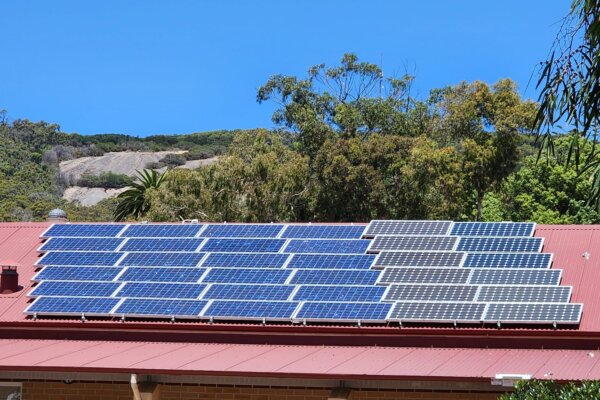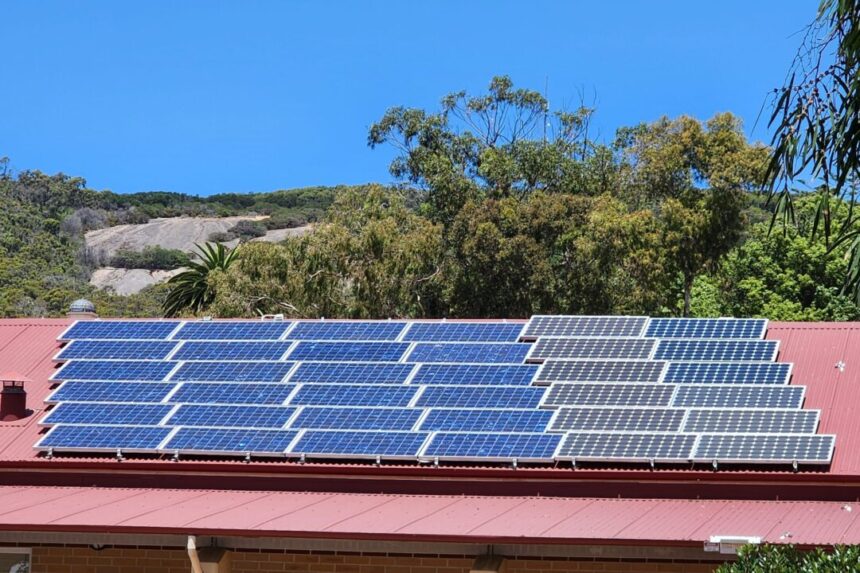
Starting in 2025, large companies will be required to report on climate risks, targets, and greenhouse gas emissions.
The Albanese government has passed laws that mandate climate reporting for major companies beginning in early 2025. The aim is to encourage increased investment in clean energy and help investors and companies effectively manage climate risks.
This bill includes new mandatory climate reporting requirements for large companies and establishes a framework to safeguard the financial market infrastructure during crises.
Initially, the law will apply to Australia’s largest companies but will eventually expand to include medium and smaller companies.
“Our changes will establish Australia’s climate risk disclosure framework, offering investors and companies the transparency, clarity, and certainty needed to invest in new opportunities as part of the net zero transformation,” Chalmers added.
Climate reporting requirements will come into effect on Jan 1, 2025, for large listed and unlisted companies in Australia. Other large businesses will be phased in over time.
How Will it Work?
After two rounds of government consultation, the introduction of the Bill marks a significant milestone in climate reporting regulation.
Major entities will need to prepare a new “sustainability report” for the financial year, including a climate statement along with their financial statements.
Initially, this requirement will apply to companies that meet two out of three criteria: revenue exceeding $500 million, gross assets surpassing $1 billion, and a workforce of 500 employees or more.
The second group will consist of companies with two out of three of the following: revenue of more than $200 million, assets of $500 million, and 250 employees or more.
The third group will include companies that meet two out of each of these criteria: revenue exceeding $50 million, gross assets exceeding $25 million, and 100 or more employees.
What Will Need to Be Disclosed?
The climate statements will be required to disclose all material financial “risks and opportunities” related to the climate. Additionally, they must include metrics and targets related to the climate, including greenhouse gas emissions, as outlined in the government’s memorandum explaining the legislation.
Furthermore, these statements will need to include information on governance and risk management related to these targets.
The government has provided exemptions for small entities that do not have significant climate-related risks or opportunities.
“It is intended that complete standardized climate disclosures would not be required for smaller in-scope entities that do not have material climate-related financial risks or opportunities,” the government clarified.
“In these instances, the entity’s climate statement will only include a statement to that effect, as well as an explanation of how it reached this conclusion.”
Financial Market Infrastructure Changes Included in Law
In addition, Treasurer Jim Chalmers mentioned that the new legislation will include reforms to empower the Reserve Bank of Australia (RBA) to intervene swiftly and resolve issues affecting financial markets.
“It will also ensure continuity of clearing and settlement services in the face of a crisis.
“Whether it’s climate disclosures, financial markets, or many of our other important changes, the Albanese Government has a broad and ambitious economic reform agenda.
“Our economic reform agenda is all about modernizing our economy and providing more certainty for more investment in Australia, and that’s what this legislation will deliver.”
Dutton Concerned About ‘Renewables Only Obsession’
On the other hand, Opposition leader Peter Dutton expressed concerns that the Labor government’s focus solely on renewables could impact the cost of living for Australians.
The national energy regulator has warned that 90% of Australia’s existing baseload energy, used to support renewables, will be out of the grid by 2034.
“Why is the Albanese government making life harder for Australian families who are already struggling to cope with Labor’s cost-of-living crisis?” Dutton questioned.
In response, Prime Minister Anthony Albanese emphasized that renewables are the most cost-effective form of new energy.
“The Leader of the Opposition asked me about, as he characterizes it, a renewables-only approach. I say it is the market-led approach that leads you to the cheapest form of new energy, which is renewables,” Albanese affirmed.
“When will the minister admit that the Albanese government’s disastrous renewables-only energy policy is leading Australia in the wrong direction?”





